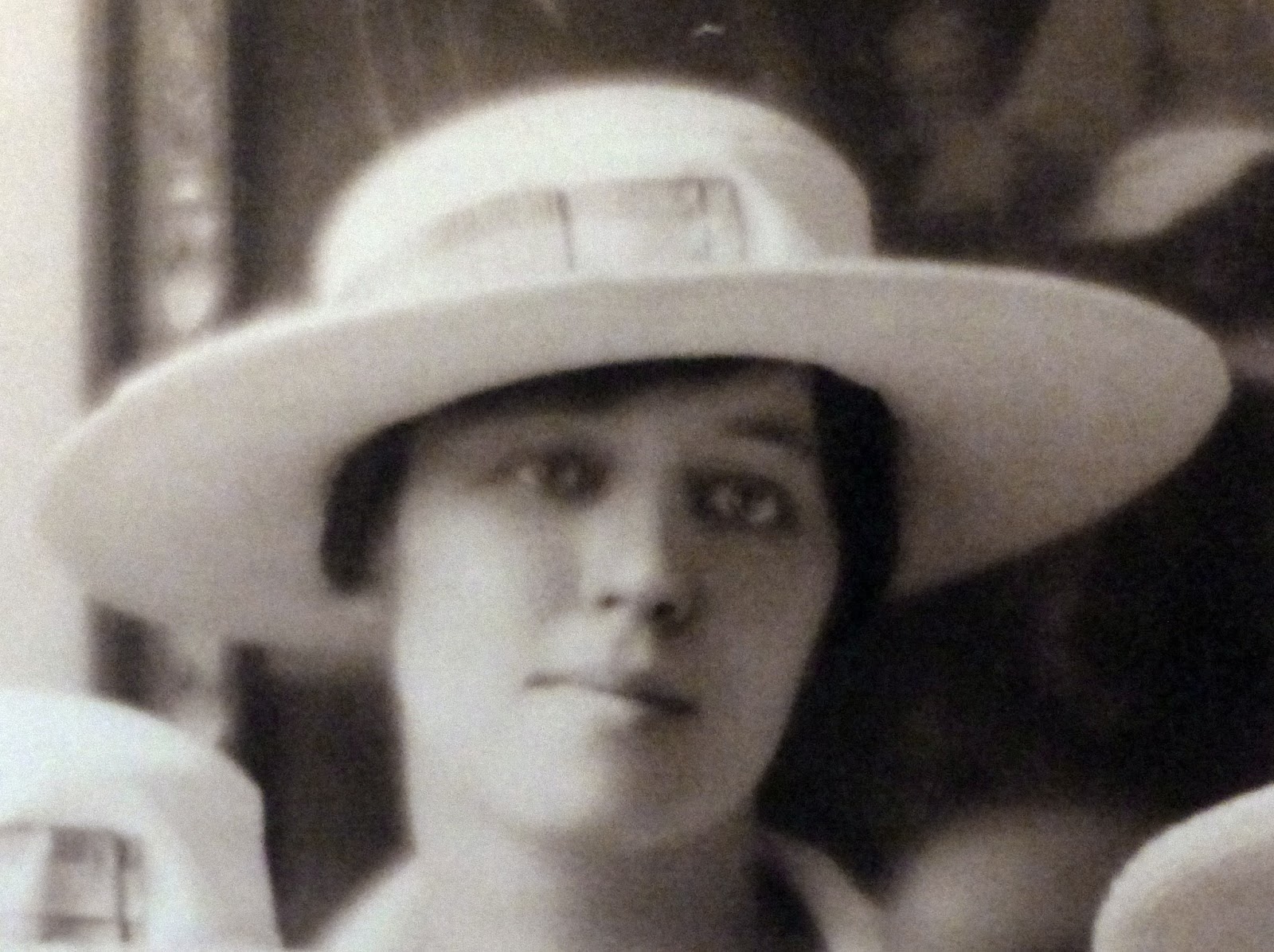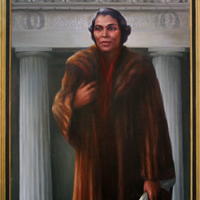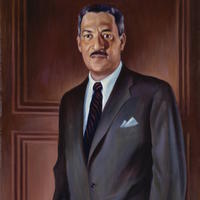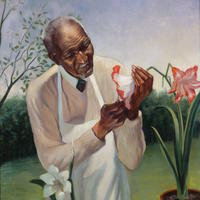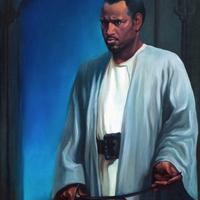More about Betsy Graves Reyneau
- All
- Info
- Shop
Works by Betsy Graves Reyneau

Contributor
Betsy Graves Reyneau loved nothing more than fighting the good fight, or – more accurately – all the good fights.
Betsy Graves Reyneau, who was born in 1888, was raised to believe that a good woman didn’t make art. Fortunately for us, that particular lesson never stuck and she ran away from home to pursue a career in art despite the resistance of her father. She attended the Boston Museum School of Art, where she began to understand her knack for protesting. While studying in Boston she and her contemporaries protested the low wages of dock workers. Not long after that, Reyneau became one of the first women to be arrested and thrown in the slammer for protesting Woodrow Wilson’s views on women’s suffrage (he was against it). Legend has it that, “As these pickers went out to celebrate the tradition of democracy, police arrested them for unlawful assembly and for obstructing traffic. On July 17, [1917], the government went further than before by meting out sentences of sixty days. When the judge decided that a twenty-five dollar fine would suffice instead, these protestors opted for prison.” She was just cool like that. But not all of her protests were public demonstration against the man. Some were private demonstrations against the man.
When Reyneau’s art became quite the hot commodity, she played a lil trick on her unsupportive fam. Because sexism was so rampant, many institutions and individuals refused to collect art by a woman, so Reyneau, the sly fox, only signed her paintings with her initials. Basically, she was famous without anyone knowing who she really was. The Circuit Court of Detroit, not knowing who Reyneau was or that she was (God forbid!) a woman, commissioned her to do a portrait of none other than chief justice of the Michigan Supreme Court, Justice Graves, aka her grandfather. “Her own father was asked to make the presentation of the portrait [not knowing that] it was his daughter’s work, as he had opposed her art studies and was not in touch with what she was doing.” She took down her dad and the patriarchy in one fell swoop. Victory never tasted so sweet.
Surprisingly, these protests aren’t even her most badass. While living in Europe during World War II, Reyneau, with the help of her daughter, housed/hid Jewish refugees from Nazi persecution. So she was kind and compassionate, but also could never resist a good stick-it-to-the-man. And Hitler proved an excellent man to whom she could stick it.
After her stint in Europe, Reyneau returned to America only to be horrified by the way that African Americans were being treated. She characterized it as the "master race theories of Hitler being directed at the American Negro" and decided to use her artistic career to do something about this. She began to create portraits of prominent African Americans, including but not limited to Aaron Douglas, George Washington Carver, Martin Luther King, Jr., Paul Robeson, Richmond Barthé, and Thurgood Marshall. These works were all collected and exhibited by the Harmon Foundation. The exhibit toured until “the Supreme Court abolished legal segregation in 1954 with the Brown v. Board of Education decision.” The director of the Foundation believed that with segregation over, the exhibit, which lasted 10 years and doubled in size, had done its job. It’s for these works that Betsy Graves Reyneau is most well known.
Sources
- Adams, Katherine H., and Michael L. Keene. "After The Vote Was Won." Google Books. N.p., 2010. Web. 12 July 2018.
- "Betsy Graves Reyneau." Michiganwomen.org. N.p., 1996. Web. 12 July 2018.
- "Betsy G. Reyneau Exhibits." Timesmachine.nytimes.com. N.p., 1922. Web. 12 July 2018.
- Lewis, Jo Ann. "TITANS OF HISTORY AND TINY STEPS OF PROGRESS." Washington Post. N.p., 1997. Web. 12 July 2018.
Featured Content
Here is what Wikipedia says about Betsy Graves Reyneau
Betsy Graves Reyneau (1888–1964) was an American painter, best known for a series of paintings of prominent African Americans for the exhibition “Portraits of Outstanding Americans of Negro Origin” that, with those by Laura Wheeler Waring and under the Harmon Foundation, toured the United States from 1944 to 1954. A granddaughter of Michigan Supreme Court Justice Benjamin F. Graves, Reyneau's sitters included Mary McLeod Bethune, George Washington Carver, Joe Louis, and Thurgood Marshall. Reyneau's portrait of Carver, the most famous, was the first of an African American to enter a national American collection.
Most of the contributions to the "Portraits of Outstanding Americans" are in the collection of the National Portrait Gallery of the Smithsonian Institution in Washington D.C.
Check out the full Wikipedia article about Betsy Graves Reyneau

